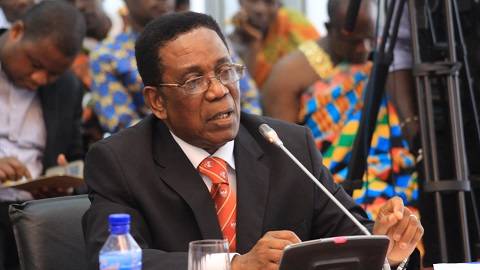Tertiary education, especially university education, is the dream of many a person, and for nations, the role of university education in development cannot be overestimated.
It provides the high-level skills necessary for the labour market, such as doctors, nurses, engineers and teachers who hold the key to human development.
It also trains and develops the analytical skills that drive the economy and make critical decisions that affect society.
The importance that society attaches to university education can be better understood when viewed against the background of the spontaneous jubilation that greeted an individual’s admission to or graduation from university in the recent past.
But stories about the drudgery and suffering people have to go through to gain admission to the university are common.
We note that unlike countries that have dedicated bodies to see to the smooth admission processes of their universities, Ghana, for all these years, does not have the benefit of such a body, which has left admission to the universities to the various universities to administer.
The system continues to pose challenges, such as the current stressful and expensive system where applicants purchase separate university application forms.
At times some applicants get concurrent admission to two or more institutions. The high number of applicants who fail to take admissions and the similar number of others who do not gain admission to universities can be attributed to this situation.
It is in view of this that the Daily Graphic reasons that the announcement by the Minister of State in charge of Tertiary Education, Professor Kwesi Yankah, at a workshop in Koforidua that a new placement system, the Centralised University Admissions and Placement Service (CAPS), would be established soon is good news.
This certainly will help streamline tertiary admission processes and promote the right of every applicant to education through a fair and efficient placement of deserving students in respective universities.
As we welcome this laudable idea and commend the Ministry of Education for the processes so far to realise that goal, our hope is that the new system will in addition help disseminate information on available programmes, their cost and areas of study that are of priority to the government.
It is our contention that the system should help develop career programmes for students, as well as collect and retain data relating to university and college placement, as happens in other jurisdictions.
As the new system will certainly occupy a unique place, we think it should be able to also advise the government on matters relating to university and college student placement.
As the processes continue with the inauguration of a national committee on centralised admissions for universities on Thursday, January 17, 2019 to facilitate the process, we urge the ministry and all stakeholders to focus on and complete this good initiative.
We admit there will be teething problems, but with the calibre of knowledgeable and experienced educationists and academics on board, we know every challenge will be surmounted.
This is why we are particularly pleased that exploratory visits have been made to two countries where a centralised university admission system has been effective for years — the United Kingdom and Nigeria — by the Ministry of Education, vice-chancellors and registrars to understudy how the system works in the two countries.
We can only urge the ministry on and say we need more of such initiatives to reform our educational sector to regain our mark as one of the countries with the best system of education around the world.

